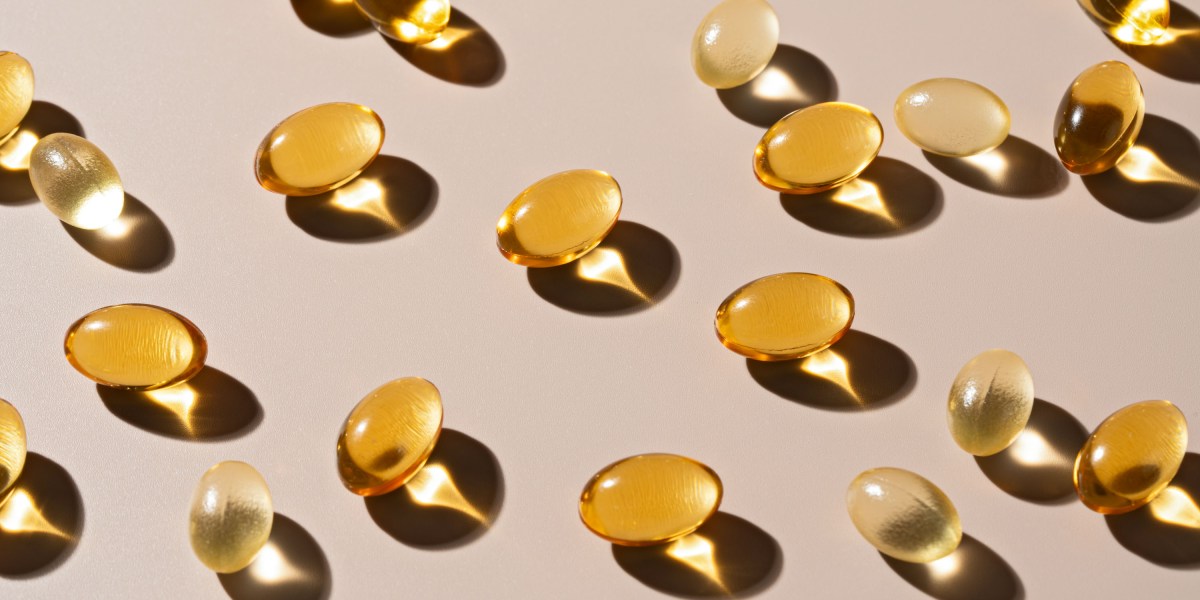
It has started to get really wintry here in London over the last few days. The mornings are frosty, the wind is biting, and it’s already dark by the time I pick my kids up from school. The darkness in particular has got me thinking about vitamin D, a.k.a. the sunshine vitamin.
At a checkup a few years ago, a doctor told me I was deficient in vitamin D. But he wouldn’t write me a prescription for supplements, simply because, as he put it, everyone in the UK is deficient. Putting the entire population on vitamin D supplements would be too expensive for the country’s national health service, he told me.
But supplementation—whether covered by a health-care provider or not—can be important. As those of us living in the Northern Hemisphere spend fewer of our waking hours in sunlight, let’s consider the importance of vitamin D.
Yes, it is important for bone health. But recent research is also uncovering surprising new insights into how the vitamin might influence other parts of our bodies, including our immune systems and heart health.
Vitamin D was discovered just over 100 years ago, when health professionals were looking for ways to treat what was then called “the English disease.” Today, we know that rickets, a weakening of bones in children, is caused by vitamin D deficiency. And vitamin D is best known for its importance in bone health.
That’s because it helps our bodies absorb calcium. Our bones are continually being broken down and rebuilt, and they need calcium for that rebuilding process. Without enough calcium, bones can become weak and brittle. (Depressingly, rickets is still a global health issue, which is why there is global consensus that infants should receive a vitamin D supplement at least until they are one year old.)
In the decades since then, scientists have learned that vitamin D has effects beyond our bones. There’s some evidence to suggest, for example, that being deficient in vitamin D puts people at risk of high blood pressure. Daily or weekly supplements can help those individuals lower their blood pressure.
A vitamin D deficiency has also been linked to a greater risk of “cardiovascular events” like heart attacks, although it’s not clear whether supplements can reduce this risk; the evidence is pretty mixed.
Vitamin D appears to influence our immune health, too. Studies have found a link between low vitamin D levels and incidence of the common cold, for example. And other research has shown that vitamin D supplements can influence the way our genes make proteins that play important roles in the way our immune systems work.
We don’t yet know exactly how these relationships work, however. And, unfortunately, a recent study that assessed the results of 37 clinical trials found that overall, vitamin D supplements aren’t likely to stop you from getting an “acute respiratory infection.”
Other studies have linked vitamin D levels to mental health, pregnancy outcomes, and even how long people survive after a cancer diagnosis. It’s tantalizing to imagine that a cheap supplement could benefit so many aspects of our health.
But, as you might have gathered if you’ve got this far, we’re not quite there yet. The evidence on the effects of vitamin D supplementation for those various conditions is mixed at best.
In fairness to researchers, it can be difficult to run a randomized clinical trial for vitamin D supplements. That’s because most of us get the bulk of our vitamin D from sunlight. Our skin converts UVB rays into a form of the vitamin that our bodies can use. We get it in our diets, too, but not much. (The main sources are oily fish, egg yolks, mushrooms, and some fortified cereals and milk alternatives.)
The standard way to measure a person’s vitamin D status is to look at blood levels of 25-hydroxycholecalciferol (25(OH)D), which is formed when the liver metabolizes vitamin D. But not everyone can agree on what the “ideal” level is.
Even if everyone did agree on a figure, it isn’t obvious how much vitamin D a person would need to consume to reach this target, or how much sunlight exposure it would take. One complicating factor is that people respond to UV rays in different ways—a lot of that can depend on how much melanin is in your skin. Similarly, if you’re sitting down to a meal of oily fish and mushrooms and washing it down with a glass of fortified milk, it’s hard to know how much more you might need.
There is more consensus on the definition of vitamin D deficiency, though. (It’s a blood level below 30 nanomoles per liter, in case you were wondering.) And until we know more about what vitamin D is doing in our bodies, our focus should be on avoiding that.
For me, that means topping up with a supplement. The UK government advises everyone in the country to take a 10-microgram vitamin D supplement over autumn and winter. That advice doesn’t factor in my age, my blood levels, or the amount of melanin in my skin. But it’s all I’ve got for now.






















